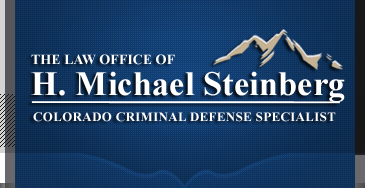






This web page contains the elements of the Colorado Crime of Child Abuse
These are only the basic elements of these crimes – to fully understand a crime with which you are charged you will need a much greater understanding of Colorado Criminal Law.
This web site is designed to empower criminal defendants by helping them understand every phase of the criminal justice process. It also addresses the different types of defenses and strategies that exist in the Colorado Criminal Justice System.
If you are charged with a crime and seek to understand the new world you have entered – you need to understand that criminal laws and procedures can be so complex that even judges can get them wrong.
Child Abuse (18-6-401)
1.(a) A person commits child abuse if such person causes an injury to a child’s life or health, or permits a child to be unreasonably placed in a situation that poses a threat of injury to the child’s life or health, or engages in a continued pattern of conduct that results in malnourishment, lack of proper medical care, cruel punishment, mistreatment, or an accumulation of injuries that ultimately results in the death of a child or serious bodily injury to a child.
(b) (I) Except as otherwise provided in subparagraph (III) of this paragraph (b), a person commits child abuse if such person excises or infibulates, in whole or in part, the labia majora, labia minora, vulva, or clitoris of a female child. A parent, guardian, or other person legally responsible for a female child or charged with the care or custody of a female child commits child abuse if he or she allows the excision or infibulation, in whole or in part, of such child’s labia majora, labia minora, vulva, or clitoris.
(II) Belief that the conduct described in subparagraph (I) of this paragraph (b) is required as a matter of custom, ritual, or standard practice or consent to the conduct by the child on whom it is performed or by the child’s parent or legal guardian shall not be an affirmative defense to a charge of child abuse under this paragraph (b).
(III) A surgical procedure as described in subparagraph (I) of this paragraph (b) is not a crime if the procedure:
(A) Is necessary to preserve the health of the child on whom it is performed and is performed by a person licensed to practice medicine under article 36 of title 12, C.R.S.; or
(B) Is performed on a child who is in labor or who has just given birth and is performed for medical purposes connected with that labor or birth by a person licensed to practice medicine under article 36 of title 12, C.R.S.
(IV) If the district attorney having jurisdiction over a case arising under this paragraph (b) has a reasonable belief that any person arrested or charged pursuant to this paragraph (b) is not a citizen or national of the United States, the district attorney shall report such information to the immigration and naturalization service in an expeditious manner.
(c) (I) A person commits child abuse if, in the presence of a child, or on the premises where a child is found, or where a child resides, or in a vehicle containing a child, the person knowingly engages in the manufacture or attempted manufacture of a controlled substance, as defined by section 18-18-102 (5), or knowingly possesses ephedrine, pseudoephedrine, or phenylpropanolamine, or their salts, isomers, or salts of isomers, with the intent to use the product as an immediate precursor in the manufacture of a controlled substance. It shall be no defense to the crime of child abuse, as described in this subparagraph (I), that the defendant did not know a child was present, a child could be found, a child resided on the premises, or that a vehicle contained a child.
(II) A parent or lawful guardian of a child or a person having the care or custody of a child who knowingly allows the child to be present at or reside at a premises or to be in a vehicle where the parent, guardian, or person having care or custody of the child knows or reasonably should know another person is engaged in the manufacture or attempted manufacture of methamphetamine commits child abuse.
(III) A parent or lawful guardian of a child or a person having the care or custody of a child who knowingly allows the child to be present at or reside at a premises or to be in a vehicle where the parent, guardian, or person having care or custody of the child knows or reasonably should know another person possesses ephedrine, pseudoephedrine, or phenylpropanolamine, or their salts, isomers, or salts of isomers, with the intent to use the product as an immediate precursor in the manufacture of methamphetamine commits child abuse.
2.In this section, “child” means a person under the age of sixteen years.
3.The statutory privilege between patient and physician and between husband and wife shall not be available for excluding or refusing testimony in any prosecution for a violation of this section.
4.No person, other than the perpetrator, complicitor, coconspirator, or accessory, who reports an instance of child abuse to law enforcement officials shall be subjected to criminal or civil liability for any consequence of making such report unless he knows at the time of making it that it is untrue.
5.Deferred prosecution is authorized for a first offense under this section unless the provisions of subsection (7.5) of this section or section 18-6-401.2 apply.
6. Repealed.
7.(a) Where death or injury results, the following shall apply:
(I) When a person acts knowingly or recklessly and the child abuse results in death to the child, it is a class 2 felony except as provided in paragraph (c) of this subsection (7).
(II) When a person acts with criminal negligence and the child abuse results in death to the child, it is a class 3 felony.
(III) When a person acts knowingly or recklessly and the child abuse results in serious bodily injury to the child, it is a class 3 felony.
(IV) When a person acts with criminal negligence and the child abuse results in serious bodily injury to the child, it is a class 4 felony.
(V) When a person acts knowingly or recklessly and the child abuse results in any injury other than serious bodily injury, it is a class 1 misdemeanor; except that, if the underlying factual basis of the child abuse, which would constitute a misdemeanor, has been found by the trier of fact to include one of the acts described in paragraph (e) of this subsection (7), subsequent to a prior conviction under this section, then it is a class 5 felony.
(VI) When a person acts with criminal negligence and the child abuse results in any injury other than serious bodily injury to the child, it is a class 2 misdemeanor; except that, if the underlying factual basis of the child abuse, which would constitute a misdemeanor, has been found by the trier of fact to include one of the acts described in paragraph (e) of this subsection (7), subsequent to a prior conviction under this section, then it is a class 5 felony.
(b) Where no death or injury results, the following shall apply:
(I) An act of child abuse when a person acts knowingly or recklessly is a class 2 misdemeanor; except that, if the underlying factual basis of the child abuse, which would constitute a misdemeanor, has been found by the trier of fact to include one of the acts described in paragraph (e) of this subsection (7), subsequent to a prior conviction under this section, then it is a class 5 felony.
(II) An act of child abuse when a person acts with criminal negligence is a class 3 misdemeanor; except that, if the underlying factual basis of the child abuse, which would constitute a misdemeanor, has been found by the trier of fact to include one of the acts described in paragraph (e) of this subsection (7), subsequent to a prior conviction under this section, then it is a class 5 felony.
(c) When a person knowingly causes the death of a child who has not yet attained twelve years of age and the person committing the offense is one in a position of trust with respect to the child, such person commits the crime of murder in the first degree as described in section 18-3-102 (1) (f).
(d) When a person commits child abuse as described in paragraph (c) of subsection (1) of this section, it is a class 3 felony.
(e) If a person commits child abuse by engaging in one of the following acts, then such person shall be punished for a second or subsequent conviction as provided in subparagraph (V) or (VI) of paragraph (a) of this subsection (7) or as provided in subparagraph (I) or (II) of paragraph (b) of this subsection (7):
(I) A continued pattern of conduct that results in malnourishment or lack of proper medical care of the child;
(II) A continued pattern of cruel punishment or unreasonable isolation or confinement of the child;
(III) Repeated threats by such person of harm or death to the child or to a significant person in the child’s life, which threats are made in the presence of the child;
(IV) A continued pattern of acts of domestic violence committed by such person, as that term is defined in section 18-6-800.3, in the presence of the child; or
(V) A continued pattern of extreme deprivation of hygienic or sanitary conditions in the child’s daily living environment.
(7.3) Felony child abuse is an extraordinary risk crime that is subject to the modified presumptive sentencing range specified in section 18-1.3-401 (10). Misdemeanor child abuse is an extraordinary risk crime that is subject to the modified sentencing range specified in section 18-1.3-501 (3).
(7.5) If a defendant is convicted of the class 2 or class 3 felony of child abuse under subparagraph (I) or (III) of paragraph (a) of subsection (7) of this section, the court shall sentence the defendant in accordance with section 18-1.3-401 (8) (d).
8.Repealed.
9. If a parent is charged with permitting a child to be unreasonably placed in a situation that poses a threat of injury to the child’s life or health, pursuant to paragraph (a) of subsection (1) of this section, and the child was seventy-two hours old or younger at the time of the alleged offense, it shall be an affirmative defense to such charge that the parent safely, reasonably, and knowingly handed the child over to a firefighter, as defined in section 18-3-201 (1), or to a hospital staff member who engages in the admission, care, or treatment of patients, when such firefighter is at a fire station or such hospital staff member is at a hospital.
Other Articles of Interest:
- Sexual Assault On A Child By One In A Position Of Trust (18-3-405.3 (2)(b)) – Pattern of Abuse (18-3-405.3 (2)(d))
- Felony Sexual Assault Crimes Sexual Assault on a Child (18-3-405)
- Colorado State Felonies
- Colorado Child Abuse Crimes, Penalties and Sentencing – C.R.S. 18-6-401 Colorado Revised Statutes
- Enticement Of A Child § 18-3-305






















